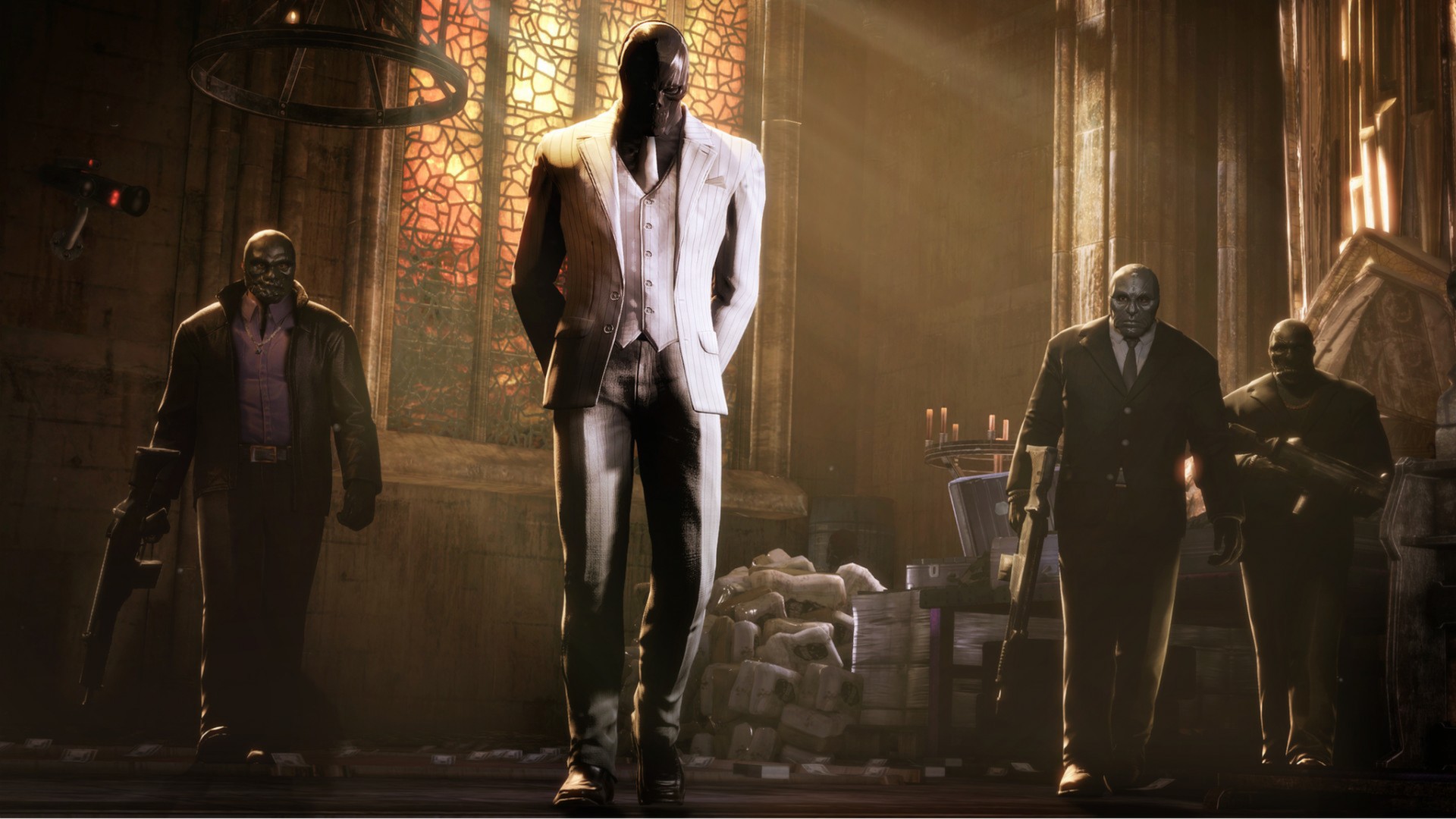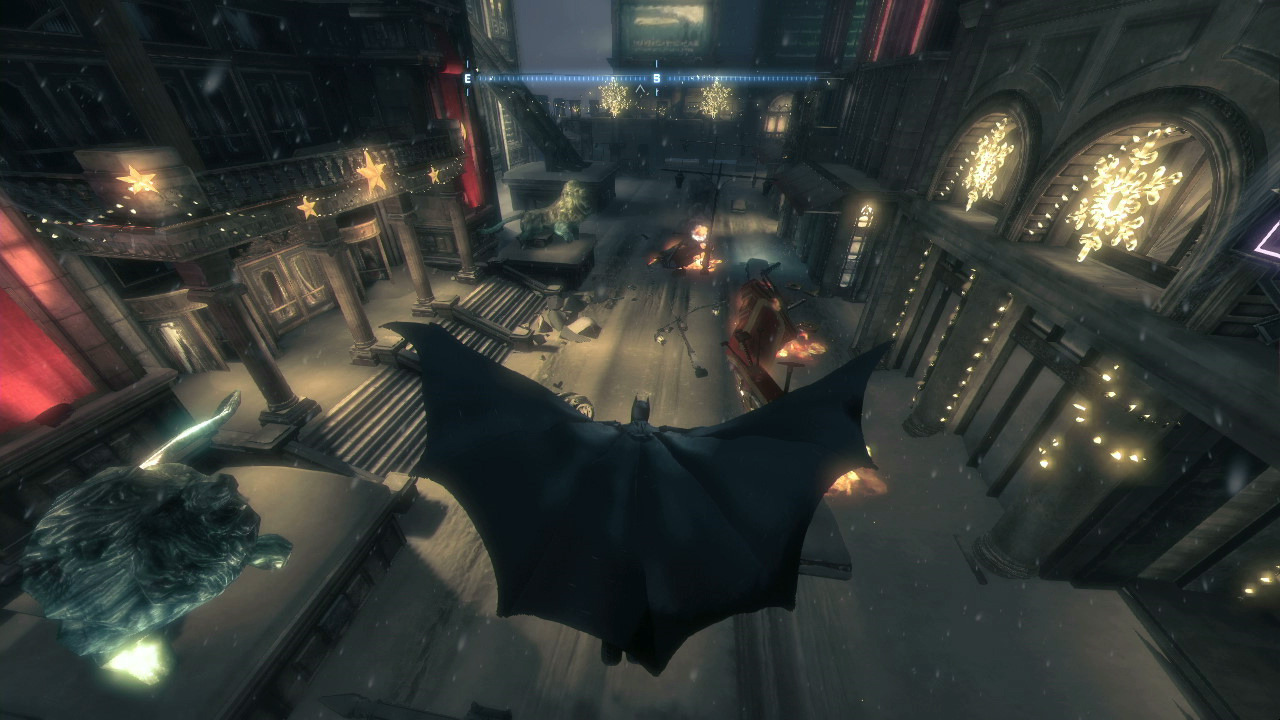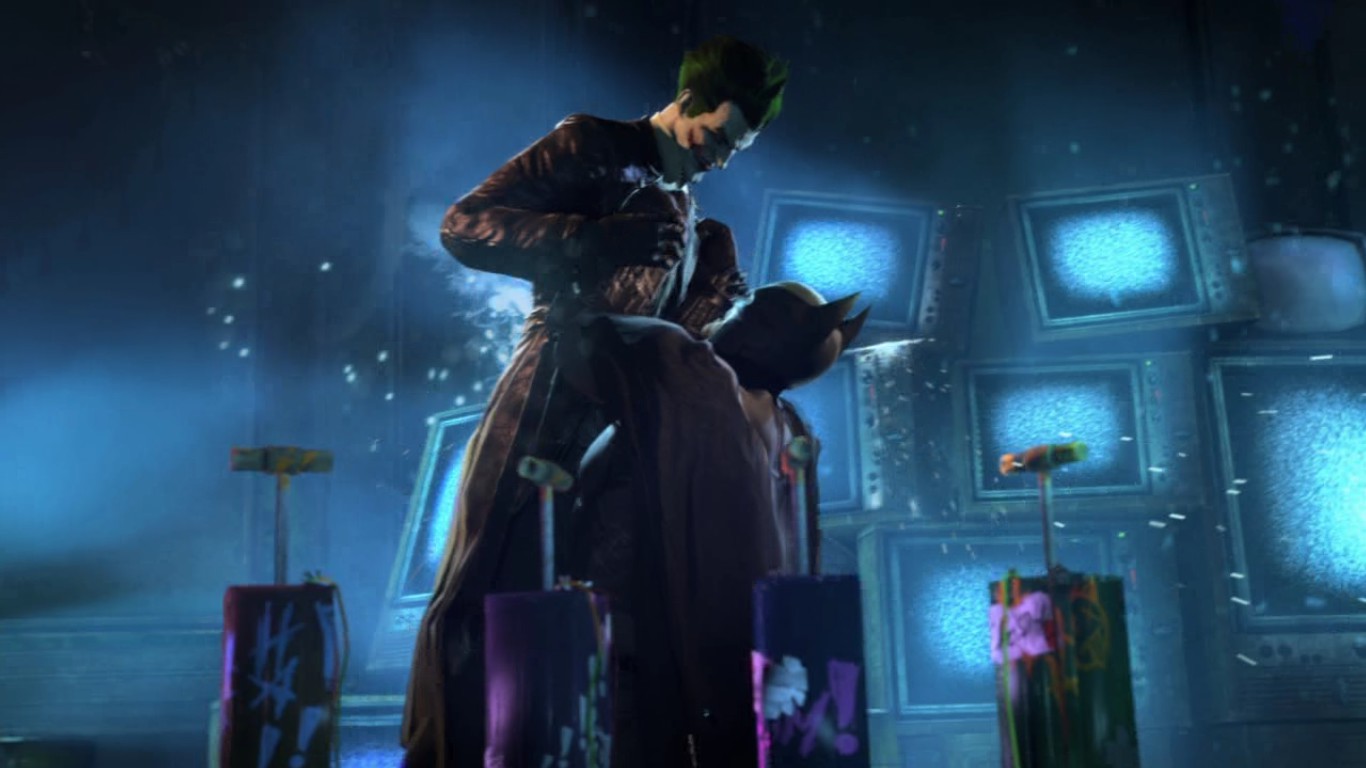Batman: Arkham Origins - Single Player Review
Batman: Arkham Origins opens with no intention of being anything but what is expected from it. In fact I was dropped into Blackgate Prison with such little fanfare and context that I may as well have been jumping back into Arkham City rather than a brand new game. This was after all the same Gotham I had run through before, familiar architecture giving way to reflexive movements honed over my time with the first two Arkham games. All of Batman’s high-tech toys were still with him, disrupting Origins’ prequel status though at least allowing my to skip collecting them for yet a third time, and by and large everything would appear to be in its rightful place eager for another excursion into Gotham’s criminal underworld (though by now I’m willing to bet there’s a warrant out for at least 90% of the city’s population).
But, therein lies the problem doesn’t it. That for whatever Origins’ is itself, it’s the third of its kind in five years, and what was once revolutionary is now mundane and ordinary. Arkham Asylum came out of nowhere as one of the best games of 2009, and easily the best Batman game ever released. Arkham City soon followed, blowing the series up into an open world and bringing with it some welcome improvements to Asylum’s mechanics, even if that came at the cost of being rather bloated with content it didn’t have any idea what to do with. So where does that leave Origins’ to take the franchise?

Well, it doesn’t really take it anywhere. Origins’ is alarmingly similar to the games that came before it, only without enough confidence to carry itself well enough to at least be comparable to them. Which, OK, it’s being handled by a new developer so perhaps some rough edges are to be expected as a new team attempts to take over the Arkham series until Rocksteady is able to finish their next game. But Origins’ failings extend beyond minor bugs or the occasional bad level design, into an overwhelming feeling that this is all just busywork to keep people occupied until the “real” third Batman game arrives. And that makes it hard to appreciate Origins’ on its own merits, when even it seems to have accepted its role as a filler game.
It feels sloppy and rushed, in little and big ways that snowball into one another as the game seems to progressively care less and less about how it eventually turns out. Combat is identical to past games using the same attack/counter freeflow system, but it fumbles over itself far more often. I was constantly having combos break when I was attacked from off-screen or had the camera fail to center on the next enemy, slipping up on counter timing that never felt right, or just having attacks fail to register properly as Batman shuffled in place as confused as I was. Encounter designs enhance these issues by popping up constantly and having no focus or balance to them. I was tossed into rings of dozens of guys with random weapons or armor, and these weird combinations made it difficult to find any kind of rhythm in the combat because it was constantly being broken by a random enemy with a knife or a car door or some other special attribute that might pop up once or a dozen times during a fight.
The Arkham combat system is one of my favorites in any game, but less than halfway through Origins’ I was already becoming annoyed anytime I walked into a fight and knew even if I played perfectly I was still at the mercy of the game doing what I told it to do. There is a lot less stealth in Origins’ than either of the past games, which was at first disappointing until I finally arrived at a predator mission and then wished they had been omitted entirely. City had already begun to stumble a bit in following up Asylum’s impeccable level designs, but Origins’ up and throws in the towel right from the start with levels that are both far too complicated yet feel significantly less tactical than past games. There are still grates you can hide in and gargoyles to hang from, but levels never account for your need to quickly move from cover to cover as you close the distance between you and a guard and just haphazardly place hiding spots throughout a room with no thought as to how you might use them in conjunction with one another.

Every stealth section felt like I was the one who was trapped, rather than the guards I was hunting, leaving me scrambling to take them out as soon as possible instead of anything more methodical and coordinated. I died more times in Origins’ than I ever did in either of the past two games, and it almost always was because I had attempted to takedown an enemy in any way other than hanging upside down and waiting for them to walk underneath. These sections became very boring almost immediately, when previously they had been my favorite parts of the Arkham games.
Maybe this is simply the result of being spoiled by Rocksteady’s games, but Origins’ doesn’t exist in a vacuum and even seems to assume to player will already be familiar with the formula. It doesn’t bother to explain mined gargoyles or enemies with sonar goggles, because if you have played City you already know how they work. It’s entirely aware of its heritage, so treating it as a self-contained work feels pointless and disingenuous. It doesn’t feel like a step forward for the series though, being closer to b-roll content cut from City than something original. We meet many of the same characters, but they’re in less interesting rolls or levels, in a more sparsely populated world filled with stuff to do that I couldn’t bring myself to be interested in bothering with.
Where the Arkham series had the most ground to make up though, and where Origins’ even had the capacity to do so was its narrative, and to its credit this is far and away the most engaging and cohesive plot the series has ever known. The cast has been trimmed down from City’s over indulgent buffet of characters, which allows Origins’ to spend more time developing them into interesting, complicated characters I wanted to know more about. Many of the assassins called in to collect a five million dollar bounty placed on Batman’s head don’t get as much time as they deserve, but they’re compensated by a far deeper, disturbed Batman who is still early in his career as a vigilante and less prepared to face the villains he’s after. At times his sense of justice and methods for carrying it out border on sociopathic, a side of him that’s not lost on those he comes in contact with and which eventually comes to a head as he is forced to come to terms with whether or not his actions are actually justified.

It’s familiar ground for Batman as a character, but its a part of him I never grow tired of exploring and which brilliantly accompanies Troy Baker’s fantastic performance as The Joker. I thought I was ready to be done with the deranged clown, but the interactions between him and Batman are so compelling I simply wish Origins’ didn’t take so long getting to them, upon which it quickly changes the subject again. The narrative as a whole is still inconsistent, but it’s Origins’ one true advancement for the series which I hope will be continued with future Arkham games.
It needs to be said though that while Origins’ is better written than either past game, it’s also the worst when it comes to portraying its female characters in a series that was already awful at doing so. Where Asylum and City at least had women with their own agency, even if they still treated them terribly, Origins uses women mostly as sexy props to stand on the sidelines for the camera to leer at. Even the two female assassins have almost no screentime and are hyper sexualized both in their movements and how the camera positions itself when they’re on screen. I can’t say any of this comes at a surprise, but it’s high time the Arkham series let go of its dick and started treating its female characters the way it treats men.
Final Word
I have a hard time flat-out calling Arkham Origins a “bad” game, but it’s saved almost solely on the strengths of what has been brought over from past games (a butchered pastiche though it may be) and carries with it a very qualified recommendation to anyone but the most devoted fans of the series. This is still an Arkham game deep down somewhere, with some exceptional characterization that sadly isn’t given enough time to shine, and by now the rhythms of the series have become so natural to me that it wasn’t difficult to get into a simple groove and fly through the game despite how unimpressive it was. I guess what I find most unpleasant is just that in only five years and three games it already feels like Batman has already shown us all he has to offer, and I’ve only reruns to look forward to in the bi-annual future.

